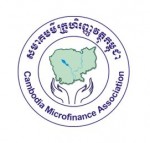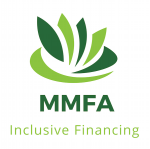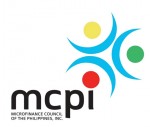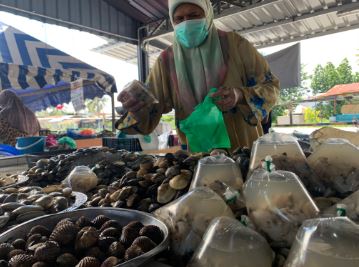Project objective
To strengthen financial inclusion in Southeast Asia through microfinance networks
Project Manager
Partners
- Lao Microfinance Association (LMFA) au Laos
- Cambodia Microfinance Association (CMA) au Cambodge
- Myanmar MicroFinance Association (MMFA)
- Microfinance Council of the Philippines, Inc. (MCPI) aux Philippines




Strengthening networks to increase financial inclusion in South-East Asia
ADA works with microfinance networks and professional associations in Laos, Cambodia, Myanmar and the Philippines to strengthen the entire inclusive finance sector in the region. Thanks to the stronger and more competent associations, microfinance institutions are able to develop services and products that are better adapted to the needs of low-income populations.
Strengthening Southeast Asian networks and professional associations
Although they are fairly recent, the professional associations and MFI networks play an essential role in accelerating financial inclusion. By
contributing to creating conditions that are favourable to the sector’s development, they represent a powerful means of extending financially inclusive products and services.
The objective of our project in South East Asia is therefore to help strengthen the microfinance network in the Philippines and the professional associations in Laos, Myanmar and Cambodia so that they in turn can support their member MFIs effectively. The aim is also to enable these networks and associations to become real spokespeople, capable of promoting the sector before the authorities and other stakeholders.
ADA strengthens professional organisations in three main ways
1. Support to professionnalising the associations
Depending on needs, we strengthen associations’ competences through training courses and a tailor-made follow-up schedule. This may involve carrying out audits, providing training in governance, developing the skills of the association’s personnel, taking part in strategic development, as well as supporting requests made to the regulators. As underlined by Khanmany Southammavong, who is a member of the
board of the Lao Microfinance Association (LMFA), “the continuous support ADA has given us helped us to develop a strong and central role in Laos. In particular, the differences between us and the regulators were reduced.”
2. Support in the services offered to member MFIs
By focusing on themes such as risk management, the analysis of financial performance indicators and product development, we encourage the associations to develop their services, thus ensuring that MFI competences are strengthened. In 2015, ADA contributed to designing the Certificate in Microfinance Management (MFMCC), which has become compulsory for all MFI managers in Laos. Khanmany Southammavong, who is also the executive director of the Lao MFI Patukham, tells us that “Patukham is a small MFI and we did not have the means to hire experts who could advise us on managing our MFI. Thanks to LMFA, we were able to take the MFMCC course. Its content was very rich and it provided uswith tools to improve the way we manage ourselves. Since then, Patukham has been able to reduce its bad debts, while improving its financial analysis skills.”
3. Support to communication between stakeholders and coordinating their actions
We contribute to setting up standardised systems for the monitoring of financial and social indicators, and we promote transparency and the exchange of information. The latter may involve the setting up of research repositories as well as support in writing publications and developing communication materials. We contribute to the agreement reached between the three professional associations so that they may exchange the lessons learnt all along the support program, capitalise on their experience and develop synergies on common questions. Khanmany Southammavong remembers an exchange meeting with the Cambodian association as being “a unique opportunity to learn from our neighbours’ experience.”
COVID-19 Response programme: subsidies and technical assistance

In April 2020, ADA, with the support of the Ministry of Foreign and European Affairs of Luxembourg, launched a response programme called "COVID-19 Response Programme" to help its partners get through the crisis by reallocating the budget of the projects postponed due to the COVID-19 crisis. A total amount of EUR 1 022 814 has been mobilised to finance this programme, which provides for:
- A grant to finance the purchase of products or equipment to facilitate responsible business continuity (masks and disinfectants), remote communication or teleworking ;
- A grant to finance emergency technical assistance to enable organisations to define and implement the necessary measures to ensure the continuity of their activities and the protection of their staff and clients;
- A grant to finance technical assistance for business resumption with advice on repositioning strategy, new product development or implementation of digital solutions among others.
For the Asia region, 17 MFIs applications were accepted for a total of EUR 175,000. Of these, 16 MFIs received subsidies and one received technical assistance.
FDC launches its report "The Inclusion Imperative: A Call to Action"
FDC’s latest report, The Inclusion Imperative: A Call to Action, explores priority issues, key trends and proposes specific recommendations to assist policy makers and regulators in creating more inclusive economies and societies across the Asia-Pacific region.
The report represents a “call to action” for stakeholders to combine their knowledge, resources and efforts to achieve equitable and sustainable outcomes through a more concrete dialogue on the institutional and legal reforms needed to make meaningful progress in support of the United Nation’s 2030 Agenda on Sustainable Development.
The recommendations in this report are the result of the discussions and contributions of participants of two major policy initiatives implemented by FDC in 2018; namely the Asia-Pacific Financial Inclusion Forum (Tokyo, 27-28 June) and the Mekong Inclusive Growth Forum (Bangkok, 2-3 October) which was organised thanks to the support and contribution of ADA, together with the Asian Development Bank Institute (ADBI), Banking with the Poor (BWTP), the Thailand Joint Standing Committee on Commerce, Industry and Banking (JSCCIB) and the United Nations Capital Development Fund’s SHIFT ASEAN Programme, which is supported by the Australian Government.